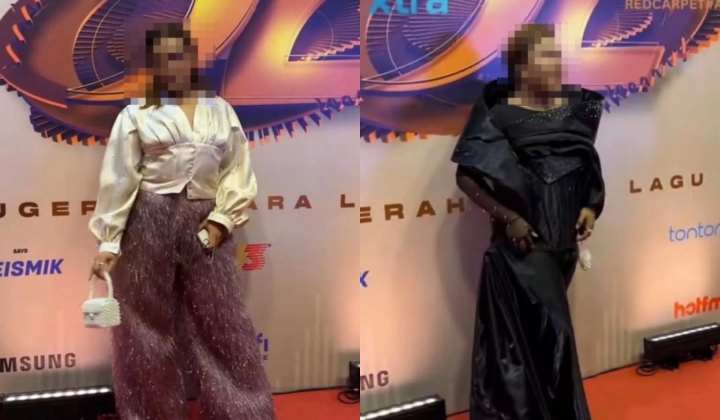Malaysian fashion influencers inflame critics by cross-dressing at music competition
Malaysian religious leaders have called for prosecution for cross-dressing

A social media firestorm has kicked up in Malaysia after a trio of male fashion influencers were seen dressed in what appeared to be feminine clothes and makeup on a popular televised music competition, The Rakyat Post reported. Some religious leaders have asserted that cross-dressing is against Islamic and federal law in Malaysia and called for prosecutions, while other fashion artists and trans groups have called for restraint and understanding.
Below is the declaration from Justice for Sisters, the Malaysian trans advocacy group, and 11 other civil society organizations, calling for restraint and inclusion from government and social leaders. It has been modestly edited:
AJL reactions signal an urgent need for gender awareness and inclusion
Justice for Sisters (JFS) and the following civil society organisations call for restraint by government officials in their response to the fashion choices of some attendees at the recent 39th Anugerah Juara Lagu (AJL), Malaysia’s popular annual music competition.
JFS observes discriminatory comments, including calls for restrictions and legal actions against the attendees and TV3 by various state actors and members of the public. We remind Members of Parliament, government officials and government agencies that their response must not further inflame discrimination. Officials and agencies have a duty to discern public backlash that is rooted in discrimination and respond wisely to de-escalate discrimination.
These reactions highlight two concerning recurring trends. Firstly, a high level of moral panic surrounding the visibility of actual or perceived LGBT people. Secondly, a very rigid and binary understanding of gender, inconsistent with facts and lived experiences of everyday people.
This signals an urgent need for public awareness and education on inclusion and gender diversity, especially in a context where gender disinformation and discrimination are on the rise.

We stress that people are diverse in their gender identities and gender expressions. While this is a fact proven by evidence and lived realities, there is increasing resistance against this fact. Further, people of diverse gender identities and expressions contribute significantly to arts, culture, and the entertainment industry in Malaysia and globally.
Gender diversity does not harm others. There is no evidence of harm caused by gender diversity. In contrast, there is overwhelming evidence of the harm caused by the suppression of diverse gender expressions and gender identities. This includes increased strain on mental health, various forms of discrimination, and restrictions on self-expression, public participation, and access to opportunities, among others.
A 2021 JFS survey shows 56.4% of 220 LGBTQ respondents stated that anti-LGBT statements by politicians caused them increased mental health strain. 33.6% reported discrimination, with 12.7% reporting more than one form of discrimination. Another 2022 study indicates that the prevalence of mental issues among the Malaysian adult LGBT population is more than double that of the general population (80.3% vs. 29.2%). This can be attributed to the increasing discrimination against LGBT people in Malaysia.
At the same time, it is important not to make assumptions about a person’s sexual orientation or gender identity based on their gender expression. Men, in general, suffer from rigid gender constructs that limit their self-expression from how they dress, to how they express their emotions, among others. In extremely rigid societies, this can result in toxic forms of masculinity and reinforcement of binary gender stereotypes and roles.
Again, we call on officials to refrain from making discriminatory comments. Instead, they should address the root problems – discrimination against LGBT people, gender disinformation, and gender stereotypes.
Endorsed by
Justice for Sisters
JEJAKA
PLUHO, People Like Us Hang Out!
Kolektif Feminis Malaysia
Life Under Umbrella
Kemban Kolektif
Persatuan Penulis Berbilang Bahasa (PEN Malaysia)
Society for Equality Respect and Trust for All (SERATA)
Greater Equitable Measures (GEM)
Centre for Independent Journalism, (CIJ)
Women’s Aid Organisation (WAO)
Autism Inclusiveness Direct Action Group (AIDA)




